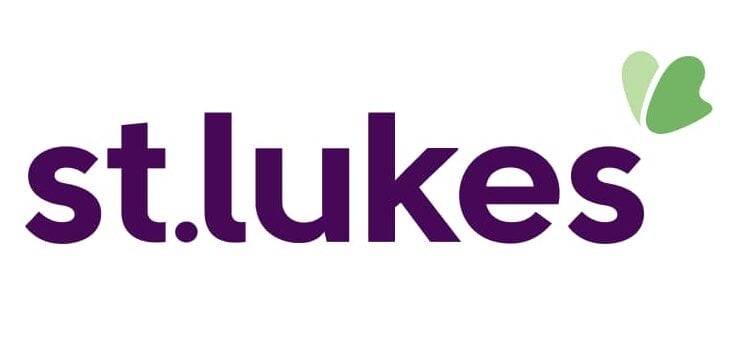CX
Interview with St Lukes’ Head of Customer Care: “AI should be used to create more space for humanity, not less.”

St Lukes is Tasmania’s leading not-for-profit health and wellness organisation. Today, it covers more Tasmanians than any other private health insurer – a testament to its unwavering commitment to the state, and vision of making Tasmania the healthiest island on the planet. We interview Belinda Martin, Head of Customer Care, on this unique people-focused business and their perspective on AI.
St Lukes is a proudly Tasmanian business. Do you find this engenders loyalty in your Tasmanian customer-base, versus the big national health insurance brands?
Absolutely. St Lukes has been deeply embedded in the Tasmanian community for more than 70 years. As Tasmania’s leading not-for-profit health and wellness organisation, we are proudly Tasmanian – for Tasmanians.
Offering value to our members means being present in the community – where you can drop into a customer care centre and talk to someone face-to-face, or pick up the phone and speak to a local.
We know our members value that we are deeply connected to the local community and understand their unique needs. This connection fosters loyalty that goes beyond price or product – it’s about belonging and partnership.
Excitingly, we now cover more Tasmanians than any other private health provider – a reflection of our deep commitment to this state and our vision to make Tasmania the healthiest island on the planet. As a not-for-profit, we are also proud to invest back into the community for the benefit of our members and all Tasmanians.
What are the most appealing use cases for AI in customer service?
AI is undeniably the buzzword of the decade, but for people-focused businesses like St Lukes, the role of AI in our organisation must be ethical and complementary – not a replacement for human connection.
With this in mind, our guiding principle for AI is that it should be used to create space for more humanity, not less.
So, if we can utilise AI in a way that frees up administrative demands and increases capacity for our people to focus on the important stuff – such as relationship building – we welcome it.
Like many organisations, we see potential in leveraging AI assistance for tasks such as conversation summaries and sentiment analysis. These capabilities could help our teams quickly understand context and emotional tone, improving efficiency and empathy in interactions.
Knowledge assistance could also provide instant access to accurate information for faster, more confident responses, while training and development support enables us to personalise learning pathways and coaching insights.
We are also big fans of wellbeing companions that support emotional health and resilience. However, governance and ethical frameworks are non-negotiable for St Lukes in operationalising all these features.
Health insurance involves emotional conversations. How do you embed empathy in the frontline?
For a not-for-profit organisation likes St Lukes, which is deeply embedded in the Tasmanian community, embedding empathy in frontline interactions is crucial because health insurance touches on personal wellbeing, financial security, and sometimes stressful life events.
Our members are trusting us with their ongoing health and wellbeing and everyone has unique needs – we don’t subscribe to a one-size-fits-all approach. Our teams take pride in actively listening to our members, with a focus on human-centred, compassionate language. But it’s about more than just words.
For St Lukes, ultimately empathy is about creating trust. We know when our members feel heard and understood – even difficult conversations become opportunities to strengthen relationships.
Which KPI(s) are you laser-focused on?
Interestingly, our Customer Leadership team at St Lukes have a unique approach when it comes to individual KPIs.
After extensive review and planning, we adopted a capability-first approach focussed on training, empowerment, and connection – rather than numeric targets.
This personable approach, together with dedicated training and coaching framework, drives exceptional outcomes across sales retention, accuracy, and quality.
We know motivated, skilled people naturally deliver above expectations. In short, our philosophy is if you invest in your people, performance will follow.
How are service delivery channels changing to meet customer demand?
Trends across the private health insurance sector are clear: customers expect choice and convenience, with self-service options available 24/7. The shift towards omnichannel options (phone, email, app, social, and bots) has increased significantly over the past decade and we know customers are choosing to engage with each of them – this is the new standard.
While businesses navigate and delve deeper into member sentiment and customer insights, ultimately in our specific industry of private health insurance, the driver of channel delivery is largely based on the nature the enquiry.
Sensitive, complex, or emotional conversations still demand human interaction. So, while data on demographics and preferences guide us, healthcare remains deeply personal, and as such we’re seeing more human conversations than ever.
What we’ve learnt is that trust and empathy cannot be automated.
Biggest priority for 2026?
Our priority for 2026 is enhancing cultural responsibilities for frontline teams, with a focus on connection, training, integrity, respect, innovation, inclusion, and wellbeing. Investing in these values will lead to happier, more supported and loyal team members, which we know will translate directly into exceptional member experiences.
Our vision – to make Tasmania the healthiest island on the planet – is an ambitious one. It demands us to innovate and to lead. We know as an organisation, St Lukes is only able to achieve what we do best, because of our people and our frontline teams are central to this.
They’re not just service providers, they’re relationship builders, advocates, and community connectors. Every investment we make in their capability and culture strengthens our chances of making our vision a reality.
Related content
Call Summarisation – the ultimate GenAI use case in contact centres
Last updated on: November 30, 2025
